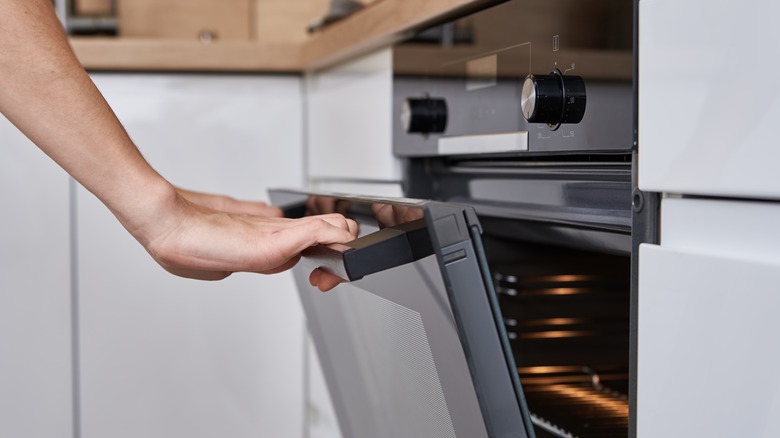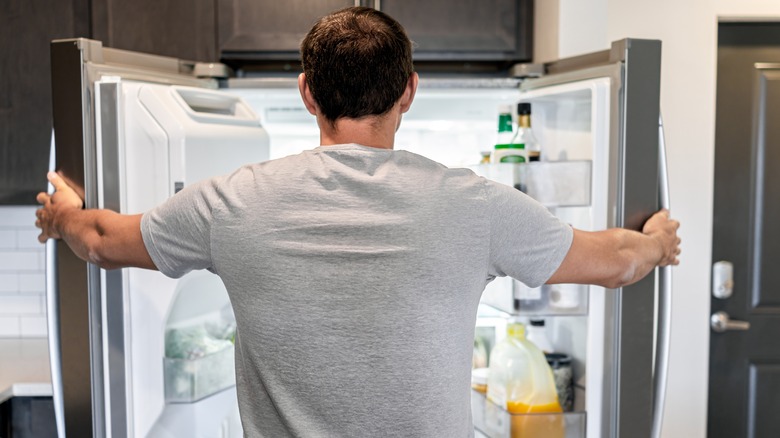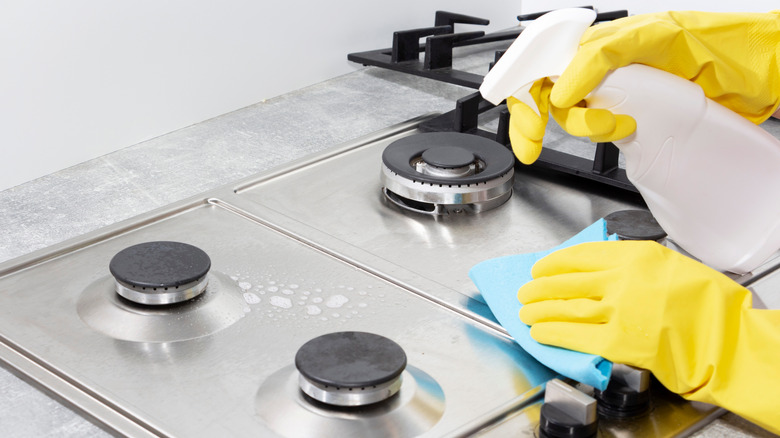How To Make Your Kitchen Appliances Last The Longest
There's nothing fun about buying new kitchen appliances, even if you consider all of the gadgets and technology upgrades. The costs, getting the right size, dealing with delivery, and the unknown reasons why the ice maker jams up are all reasons to avoid replacing kitchen appliances too soon.
After talking with numerous manufacturers, Consumer Reports says that most kitchen appliances last about 10 years. Some companies claim their products last much longer, up to 20 years in some cases. The key to remember here is that, though they make those claims, the results are directly linked to how well consumers take care of their fridge, stove, microwave, and dishwasher. When was the last time you pulled out the refrigerator to find out what is stuck to the floor under it? Did you know you need to clean the burners on your stove? If you want to make your kitchen appliances last longer, you'll need a few tips and strategies to make it possible.
Consider the fridge
Just how much does a refrigerator cost? The average cost of purchasing a new Energy Star refrigerator (with a brushed steel finish and the freezer on top) is about $500. For a higher-end modern French door fridge, you can expect to pay $1,900, according to HomeAdvisor.
To avoid that, work on extending its lifespan. Start by moving the fridge away from the wall so the condensers can pull in more cool air to help keep the active components operating properly. It's also important to find and clean the condenser coils to ensure dirt and pet hair aren't clogging them. It also helps to read the owner's manual to learn what preventative steps you need to take to maintain it, such as cleaning the gaskets and changing the filter. Consider having your refrigerator inspected by an appliance repair technician each year, which helps ensure your system is operating at peak performance with a properly working thermostat and proper maintenance.
Think about the stove and oven
Your stove and oven are other big-value kitchen appliances you may want to maintain to reduce the risk of replacing them. A gas range could last as long as 15 years, and an electric range has a life span of about 13 years, according to Consumer Reports.
To achieve those figures, there are a few things you need to do on a routine basis. Cleaning is perhaps the biggest factor. Keeping the burners and stovetop clean as built-up material here can create a higher risk of a fire. Keep the oven racks, drip pans, and oven door gasket all free from debris, grease, or other substances. Routine oven cleaning is a bit easier when you don't have to scrub off all of that stuck-on "stuff."
The electronics on some ovens and stoves can also be a factor in an early breakdown. Having an appliance inspection each year can help minimize this risk as your technician can inspect the wiring, motor, outlet, and other working components to ensure proper function. Also, be sure to follow the owner's manual for other preventative maintenance steps specific to the model you own.


